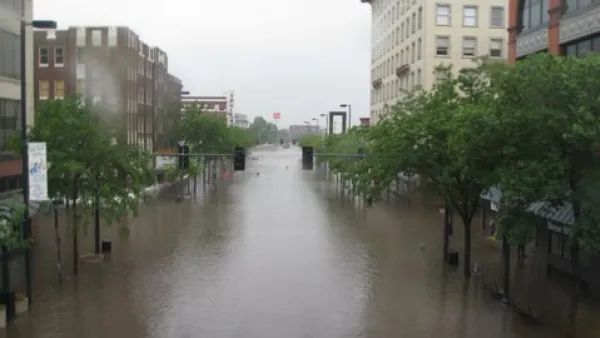Irvin Dawid discovered Planetizen when a classmate in an urban planning lab at San Jose State University shared it with him in 2003. When he left San Jose State that year, he took with him an interest in Planetizen, if not the master's degree in urban & regional planning.
As a long-time environmental activist, he formed the Sustainable Land Use committee for his local Sierra Club chapter and served six years on the Bay Area Air Quality Management District’s Advisory Council from 2002-2008. He maintains his interest in air quality by representing Sierra Club California on the Clean Air Dialogue, a working group of the Calif. Environmental Dialog representing business, regulatory and public health/environmental interests.
Major interests include transportation funding, e.g., gas taxes, vehicle miles traveled (VMT) fees, road tolls and energy subsidies that lead to unlevel playing fields for more sustainable choices.
He hails from Queens (Bayside) and Long Island (Great Neck); received an AAS in Fisheries & Wildlife Technology from SUNY Cobleskill and a B.S. from what is now Excelsior College.
After residing for three years on California’s North Coast, he’s lived on the San Francisco Peninsula since 1983, including 24 years in Palo Alto. Home is now near downtown Burlingame, a short bike-ride to the Caltrain station.
He’s been car-free since driving his 1972 Dodge Tradesman maxi-van, his means to exit Long Island in 1979, to the junkyard in 1988.
Major forms of transportation: A 1991 'citybike' and monthly Caltrain pass, zone 2-2. "It's no LIRR, but it may be the most bike friendly train in America."
Irvin can be reached at [email protected]
Foxx's First Goal: Find the Money!
Keith Laing, with help from Josh Schank of the Eno Center for Transportation, describes the reality facing the new Secretary of the Department of Transportation. With gas tax revenue dwindling and MAP-21 expiring next year, securing funds is crucial.

Rebuilding in Flood Plains - It's Difficult to Resist
Reporting from Cedar Rapids, Iowa, where a 2008 flood devastated 14% of this city of 126,000, John Eligon writes of the extensive rebuilding that has occurred in the flood plain - largely without protection from future floods.
Climate-Caused Blackouts Ahead, Warns DOE
John M. Broder writes about a new U.S. Department of Energy report released July 11th that details the vulnerability of the nation's entire energy system to climate change effects - from droughts, intense storms, rising seas, lower river levels...
Safeguarding New York's Most Vulnerable Neighborhood
While Staten Island and Rockaway, Queens also suffered devastation from Superstorm Sandy; Broad Channel, an island in Jamaica Bay, Queens, may be the lowest lying area in the City and endures tidal flooding regularly, not just from storm surges.
Has President Obama Turned the Corner on Climate Change?
Analysts have noted a change in the president on climate change in his second term. Call it a "message shift". Rather than addressing it in terms of the need for clean energy and renewables, he now speaks directly to the perils of climate change.

























